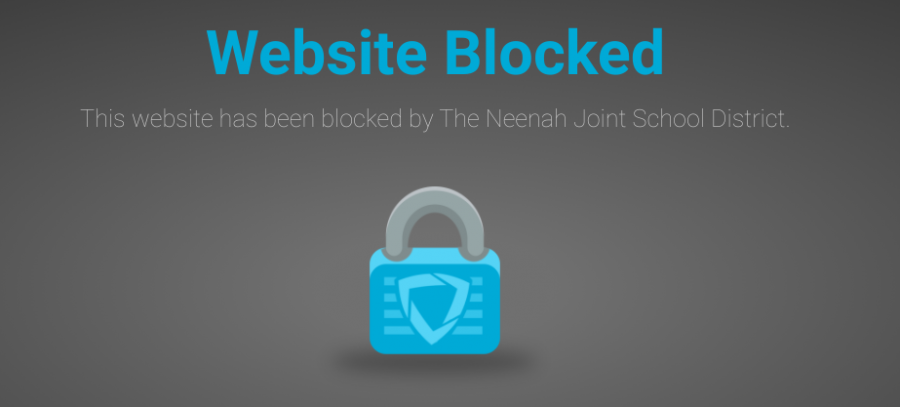“This Website Has Been Blocked by the Neenah Joint School District”
January 6, 2021
Dear Editor:
Students have all seen it. It’s the social media site that links them to Katy Perry’s newest post, or perhaps that brief phase in middle school where coolmathgames.com was a lifeline. Website Blocked: This website has been blocked by The Neenah Joint School District. The district monitors every chromebook and deters students from inappropriate sites or games that don’t pertain to the task at hand. Even with the introduction of GoGuardian, an application that allows teachers to see student’s slides, the intensity in which blocking continues does not slack. When children could first access the Internet in the late 1990s (Anderson), for a nation where information had been limited to more tactile resources, it was groundbreaking. It also forced teachers and educators to enter unknown territory. The Internet is — and was — a wide expanse of limitless resources, not all for the benefit of the user. Even as the Internet continues to evolve, as well as students’ access to it, the boundaries in which administrators block sites and programs remains blurry. In 2000, the start of a new century, Congress passed the Child Internet Protection Act (CIPA) (“CIPA”). This granted public libraries and schools money to fund Internet blocking software. Despite the seemingly obvious benefits of a law that limits the exposure of inappropriate materials to children, it was met with debate and criticism. Did CIPA allow for systematic racism and homophobia? How did CIPA encourage overfiltering? The Neenah Joint School District has seen its fair share of blockage: from multiple emails accounts to social media sites, the district does not take safety lightly. At some point, though some wonder where the line ends. For starters, as the Internet continues to evolve, so do it’s users. When it might have once been applicable to block Facebook and other connection sites, now, they limit students. As students continue to branch into college-ready experiences, communal connections have been one of them. Some students, encouraged by programs like the National Honors Society or Arete, have extended their reach to the community, whether it is for events or volunteer opportunities. However, there are multiple restrictions in place. For example, some students cannot
access multiple email accounts to send a professional image forward. All social media
networking sites are blocked, regardless of their various benefits. As curriculums demand for
students to better plan their future and post-graduate careers, even from grades as young as sixth, it seems counterintuitive to push for such censoring. Releasing restrictions in place would allow students to expand their professional horizons.
Nevertheless, Facebook and personal emails do raise a concern: safety. Especially in recent misconceptions surrounding the election, the Internet is a breeding ground for fake news (Anderson). Unfortunately, fake news is just one half of the coin. In addition, teenagers can be exposed to violent or sexually-explicit material. On the other hand, administors push students to become more digitally-aware and intelligent. How does limiting exposure help students? Answer: it doesn’t. As Mary Beth Hartz, the technology coordinator at Beeber’s Science Leadership Academy says blocking content doesn’t teach students how to “effectively, respectfully, and responsibly use the Internet” (Anderson). To present an anecdotal example to support this might further shed light on this issue.
If parents did not want children to become sugar-dependent or unhealthy, they would not withhold sugar entirely. Instead, they might allow for small dosages that teach children how to control themselves. As shown in popular movies like Parental Guidance, entirely retaining the device neither prepares the youth for adulthood nor allows them to experience why sugar should be consumed in small quantities.
In conclusion, as educational standards and the Internet evolves, so should Internet blocking. It will better teach children Internet responsibility and allow them to make real-world connections. The time of discovering a world contained in a few clicks and keys has long since passed; it’s time to stop dwelling in the past and move into the future.
Sincerely,
Natalie Frank, Class of 2022


